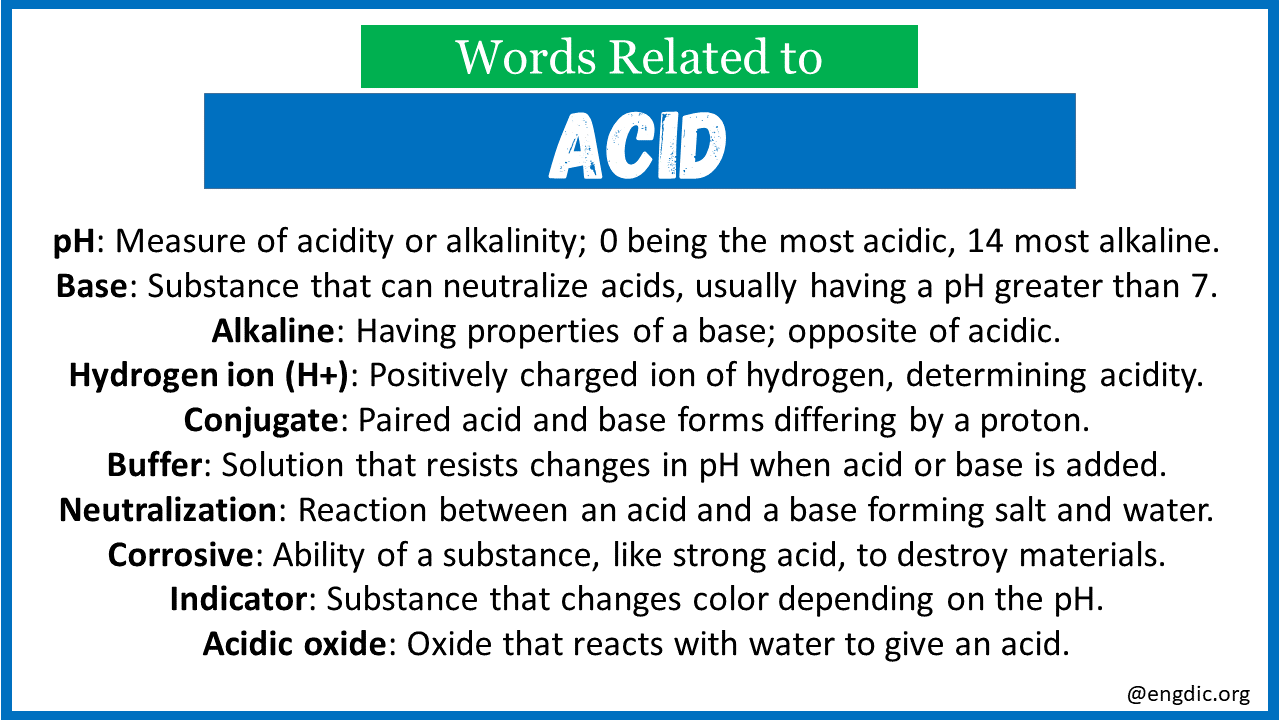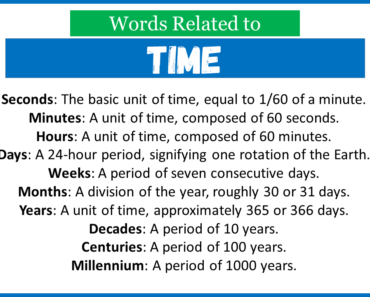Acids play a pivotal role in various scientific, culinary, and industrial processes. Understanding the terminology associated with acids can deepen one’s grasp of their properties and applications. Below are the top 30 words related to acid, each accompanied by a concise definition.
Words Related to Acid
Below are the top 30 terms related to acid with meaning:
- pH: Measure of acidity or alkalinity; 0 being the most acidic, 14 most alkaline.
- Base: Substance that can neutralize acids, usually having a pH greater than 7.
- Alkaline: Having properties of a base; opposite of acidic.
- Hydrogen ion (H+): Positively charged ion of hydrogen, determining acidity.
- Conjugate: Paired acid and base forms differing by a proton.
- Buffer: Solution that resists changes in pH when acid or base is added.
- Neutralization: Reaction between an acid and a base forming salt and water.
- Titration: Laboratory method to determine the concentration of an acid or base.
- Corrosive: Ability of a substance, like strong acid, to destroy materials.
- Indicator: Substance that changes color depending on the pH.
- Hydronium (H3O+): Ion formed when an acid donates a proton to water.
- Dissociation: Process where acid molecules separate into ions in solution.
- Amphoteric: Substance that can act both as acid and base.
- Acidic oxide: Oxide that reacts with water to give an acid.
- pKa: Measure of acid strength; lower pKa indicates stronger acid.
- Weak acid: Acid that doesn’t completely dissociate in water.
- Strong acid: Acid that fully dissociates to give H+ ions in water.
- Salt: Compound formed from neutralization of acid and base.
- Anhydride: Compound formed by removing water from an acid.
- Acid rain: Precipitation with lower than normal pH due to air pollution.
- Fatty acid: Long hydrocarbon chains ending with a carboxylic acid group.
- Acidophile: Organisms that thrive in highly acidic environments.
- Esterification: Reaction of an acid with an alcohol to produce an ester.
- Acid-base equilibrium: State where rate of forward and reverse reactions are equal.
- Bicarbonate: Anion (HCO3-) that acts as a buffer in blood.
- Polyprotic: Acid able to donate more than one proton.
- Amino acid: Building blocks of proteins, containing amino and carboxyl groups.
- Proton donor: Substance that releases H+ ions in a reaction, typical of acids.
- Electrophile: Atom or molecule seeking electrons; acids are often electrophilic.
- Carboxyl group (COOH): Functional group present in organic acids.
Read Other Related Words:







